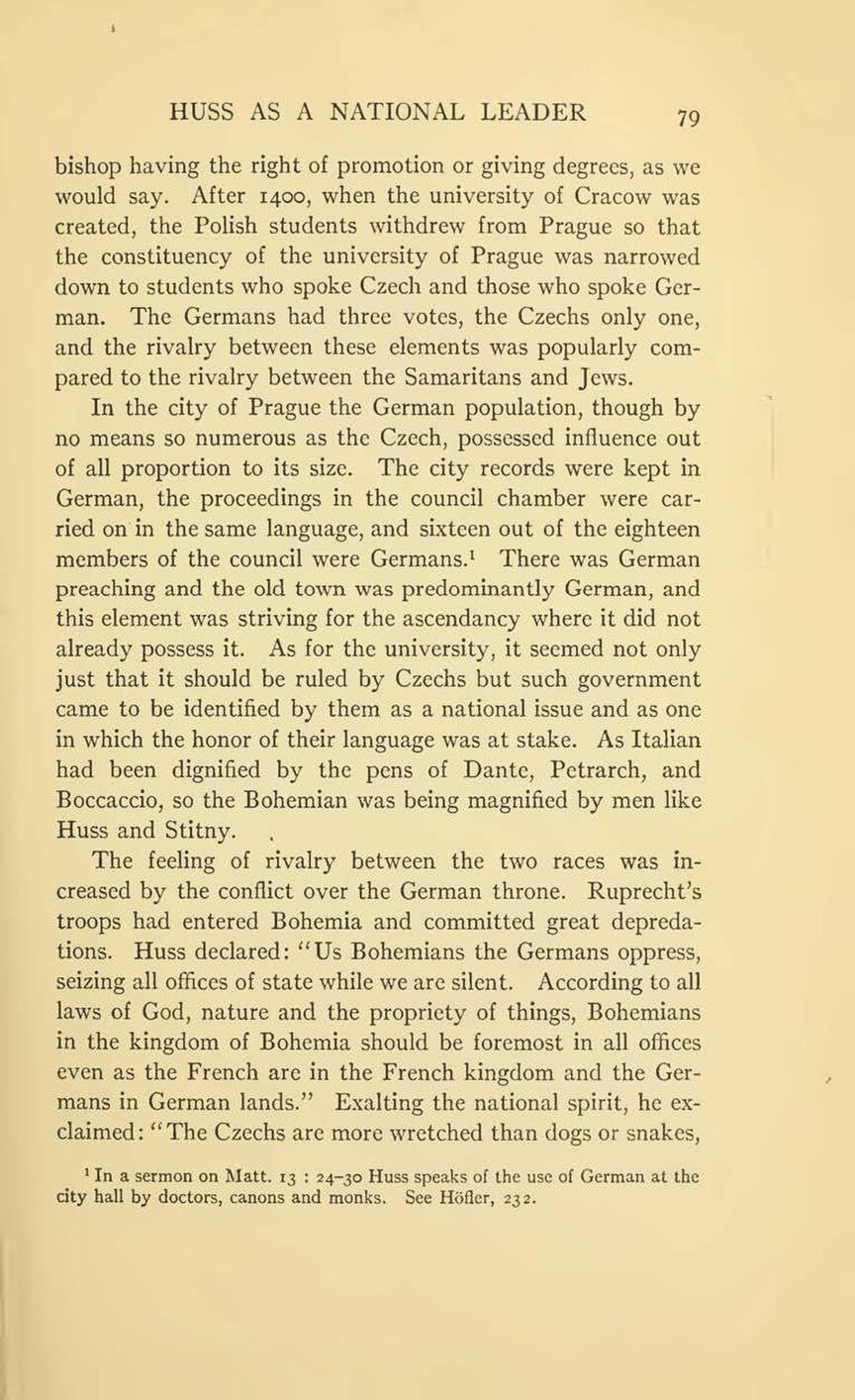bishop having the right of promotion or giving degrees, as we would say. After 1400, when the university of Cracow was created, the Polish students withdrew from Prague so that the constituency of the university of Prague was narrowed down to students who spoke Czech and those who spoke German. The Germans had three votes, the Czechs only one, and the rivalry between these elements was popularly compared to the rivalry between the Samaritans and Jews.
In the city of Prague the German population, though by no means so numerous as the Czech, possessed influence out of all proportion to its size. The city records were kept in German, the proceedings in the council chamber were carried on in the same language, and sixteen out of the eighteen members of the council were Germans.[1] There was German preaching and the old town was predominantly German, and this element was striving for the ascendancy where it did not already possess it. As for the university, it seemed not only just that it should be ruled by Czechs but such government came to be identified by them as a national issue and as one in which the honor of their language was at stake. As Italian had been dignified by the pens of Dante, Petrarch, and Boccaccio, so the Bohemian was being magnified by men like Huss and Stitny.
The feeling of rivalry between the two races was increased by the conflict over the German throne. Ruprecht’s troops had entered Bohemia and committed great depredations. Huss declared: “Us Bohemians the Germans oppress, seizing all offices of state while we are silent. According to all laws of God, nature and the propriety of things, Bohemians in the kingdom of Bohemia should be foremost in all offices even as the French are in the French kingdom and the Germans in German lands.” Exalting the national spirit, he exclaimed: “The Czechs are more wretched than dogs or snakes,
